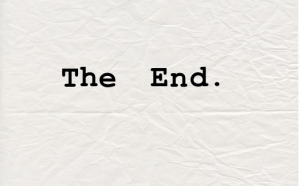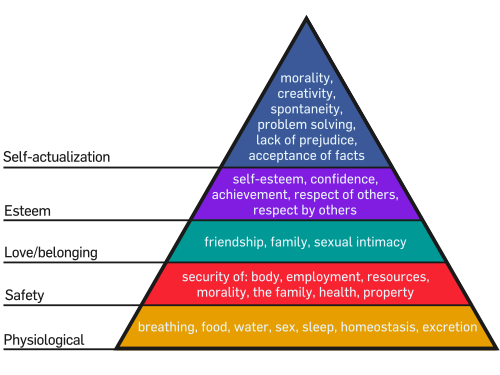Julie Duffy's Blog, page 174
September 28, 2013
[Writing Prompt] Back To The Beginning
Now that we’ve concentrated on the middle, the climax and the end, it seem only logical to go back to the beginning.
The Prompt
Rewrite The Beginning
Tips
Go back through any stories you have written this month (or ever) and rewrite your first line. Strong beginnings are important and it is almost impossible to write a good first line before you’ve finished the story.
The ideal first line contains everything in your story: you character’s needs, desires, and where they will go on their journey through this story; setting, atmosphere, tone…
Spend a good amount of time on this. Try four or five different openings for each story you look at.
Go!
Thanks for playing along during StoryADay September’s prompt-fest.
Don’t forget to sign up for news about the next proper StoryADay May challenge (which really is a Story A Day!).
If you need more writing prompts, bookmark this category. Come back as often as you need. You can also sign up for prompts by email every Wednesday and I’d love it if you’d play along by posting your short story here at the site each week and providing feedback for other people.
If you’re interested in investing in your writing development, sign up for the StoryADay Creativity Lab mailing list. I don’t mail to this list very often, but when I do it is with news about courses (mine and other people’s) and books, tools, workshops etc. that I think are worth your time and money as a developing writer. I’ll be posting details in this list first about the next Warm Up You Writing Live Sessions — a three-week workshop hosted by yours truly, with writing exercises, audio classes, online forums and one-to-one coaching. Don’t miss out!




September 27, 2013
[Writing Prompt] Ending With An Ending
This week we’ve practiced starting with a character, progressing through the middle, approaching the climax, writing the climax. Now that September is drawing to its end, don’t you think it’s time to work on our endings?
The Prompt
Write A Short Short Story, Concentrating On Writing A Strong Ending

Tips
Short stories have to end. You can’t just stop writing because you get tired and tell yourself you’re being ‘literary’. Even ambiguous endings have structure and purpose, when they’re well done.
You can tie everything up in a bow if you want. Answer all the questions, tell us who ends up with whom, whether or not the changes the character underwent in the story are permanent. Serve your reader their dessert, clear the table, stack the dishwasher, wipe the surfaces. The risk with this ending is that your reader will be insulted and left on the sidelines. Use a light hand. Give us the detail we need but don’t belabor it and remember to involve our emotions.
You can leave the ending ambiguous. Let the character act to answer a central question, but don’t tell us what choice they made. Let the reader decide. This is particularly effective if you have set up a big moral question for your character, or a life-changing choice. Let your character walk out of a door, or pick up a pen, or turn the ignition…You risk leaving your reader unsatisfied, but as long as all the other questions in the story are answered, you may be able to get away with having your character ride off into the sunset, leaving your reader to decide (based on what they have come to know of him during the story) what he’s riding off to do.
Give us a twist. As long as the twist is logical and not too much of a cliche, go ahead and surprise us. Twists can be sad or funny or sweet, but to be satisfying, they must not introduce any new information — no sudden new characters or magical fairies swooping in to save the day. Just something you have withheld or hidden. Think: O. Henry, Twilight Zone, The Sixth Sense. Your reader should be able to go back over the story and see all the elements that made the twist ending possible.
Go!




September 26, 2013
[Writing Prompt] The Bit Before The End
Remember when your teachers told you every story had a beginning, a middle and an end? Well, they missed a bit.
The Prompt
Write a Flash Fiction Story With Emphasis On The Climax
I love disaster movies — even the really cheesy ones — so my story today will be a mini disaster movie.
I don’t have time, in flash fiction, to build up all the characters a disaster movie would visit at the beginning (the screw-up anti-hero, his ex-wife, the wise elder who’s doomed to die, the young person who hates the anti-hero but will eventually become reconciled with him, the comic relief, the unrequited love interest, the bull-headed person in authority who hampers the anti-hero’s efforts to save the world and, of course, the villain who causes it all through action or arrogant inaction…see? I REALLY love my disaster movies!).
nstead, I’m going to have to concentrate on quickly establishing my flawed character, what he thinks he wants, what he actually needs, his wise-cracking character and his long-suffering assistant/love interest. Then I’m going to wreck his life — quickly — which is fine, cos his life was a wreck anyway. Then I’m going to threaten the last people he cares about, just like we practiced earlier this week.
Finally, I’m going to really concentrate on the climax. I only have up to 1000 words, so I’m not going to be able to go the full Bruce-Willis/Sharknado here, but I’m going to put everything on the line and do my best to pull at the reader’s heartstrings.
FInally, I’m going to spend 100 words or fewer wrapping up.
Tips
Before you even start writing, imagine a killer climax
This mean you’re going to have to know your character and his/her problem before you start writing.
You’re also going to have to think of a few complications you might throw at your character.
How can you show the reader why this matters? (Disaster movies usually do this by having the main character’s best friend tell point it out in a conversation, wherein the anti-hero shrugs and makes a witty, self-deprecating joke.)
Don’t be afraid of the cheese factor. This is an exercise, not your last shot at literary immortality (and even if it was, someone got paid to write Sharknado, after all!)
Concentrate on your climax. Everything is at stake, but you don’t have to be writing a disaster movie to make this dramatic. How will your hero change to get out of this problem? If he’s a ranging drunk, can he put down the bottle? If she never talks back to anyone, does she finally stand up for herself? If she’s living under an oppressive regime, can she put three fingers to her lips in a gesture of defiance and have that gesture returned by the crowd (no, wait, that’s been done. But see how totally silent, non-violent act, can be electrifyingly dramatic?)
You have a maximum of 1000 words.
Go!




Writing Parent’s Interruption Flowchart
Please print this out and pin it to whatever door or wall space you use as a buffer between you and those loved ones whose sole purpose in life seems to be to keep you from your writing.
And here are some articles to help you with productivity:
Delegate Your Way To Writing Success
Let Me Bust Your Writing Excuses
Imagining The Perfect Reader




September 25, 2013
[Writing Prompt] Make It Even Worse
Yesterday we took your character’s dreams and dashed them in the middle of the story.
Today I want you to take your character, and their desire and cripple them not once, but twice. Of course you get to reward them with a little win in the middle.
The Prompt
Give your character a goal, frustrate them, let them make some progress but let it come at a cost.
Tips
Think about Star Wars, the great story-outliner’s tool: Luke wants to get off this boring little planet but his aim is frustrated by obligations and lack of opportunity. When his family is murdered he finally acts. His next aim is to find and rescue the sexy princess (spoiler alert: Ew!). Problem: she’s on the most heavily defended, most technologically advanced ship in the fleet of the all-powerful empire. Somehow he succeeds. Yay! BUT, oh no, they sacrifice Obi-Wan, his mentor, at the same time. Now Luke has a new mission: overthrow the empire. Fail, Strive, Succeed but at a cost, pursue next part of his ‘want’. [Check out this Narrative Map of the Hero's Journey]
Put your character in an impossible situation. Let him dig his way out only to fall into a new pit. Only this time he knows a bit more about himself and what it’ll take to climb out. (Friends? A rope? Strong hands?) Let the character use what they learned in the first part of the middle, to achieve what they need to do next.
It doesn’t have to be all doom and gloom or drama. If you’re writing humor you can still do this. Frustration is funny. Even throwing in a moment of tragedy is acceptable in comic writing. In fact, if you’re making your reader laugh until 2/3 of the way through the story, they won’t even notice the knife in your hand until you’re sliding it between their ribs. Bam! Will that pack an emotional punch?! (Sitcoms do this from time to time. Aren’t you surprised to find yourself suddenly sobbing during your favorite 30 minute comedy?)
Go!




September 24, 2013
[Writing Prompt] Mess With Their Heads
Last week we concentrated on character desires. Giving your character a ‘need’ gives them something to fight for and your reader something to root for.
This week we’re going to explore ways to continue those stories and finish them off.
The Prompt
Create A Really Big Problem For Your Character

Take a character or situation you have written about before and write the story again. This time, bearing in mind your character’s need, do everything you can to derail that character’s progress. Make it big. Make it bad. Do things to your characters that make your reader gasp “How in the world is she ever going to get out of that?!”
Tips
Try not to worry too much about how you’re going to get your character out of trouble.
Do have an end in mind (i.e. know whether or not she’s going to get the guy and whether or not that is good news, given her character need).
Just for this story, don’t fret if you can’t transition neatly from ‘oh hell, it just all fell apart from her’ to ‘aha, and here’s how she reacts at the end’. Allow yourself to be sketchy. Don’t try to write deathless prose. Just hash out the events, concentrate on the emotions and worry about clean up later.
Go!




September 21, 2013
What Does Your Character Want? Five September Writing Prompts
This week’s prompts have all been about exploring character needs. With a desire, why are we reading about your character? Without an obstacle to that desire, where’s the story?
Use these prompts to spark a few stories of your own. Don’t forget to leave a comment and let me know which ones worked best for you, and be entered to win a copy of my Time To Write Workshop.
Prompt 1 — Filthy Lucre
Your character needs money, and fast! Why? How? You tell us!
Prompt 2 — Gimme Shelter
One of the most primitive needs of any person is a need for shelter. This prompt explores that in ways from primitive to more civilized.
Prompt 3 — Feed Me, Seymour!
Staying with the basic needs of humanity: your character is hungry. Why? What’s stopping them from ordering in? Tell us the story.
Prompt 4 — Belonging
Now that you’ve explored the most basic needs of your characters, what next? Well, let’s assume they’re safe and fed. What do they want now? To belong. Tell this story today.
Prompt 5 – Appreciate Me!
Beyond mere belonging, people need to be appreciated for who they are. Write the story of someone fighting to be appreciated.
Could You Use More Instruction, From Writing’s Hottest Teachers? Watch this video!
(Not an affiliate link, because I want you to get the 50% discount you get by joining the DIYMFA list!)
Video notes
Chuck Wendig actually blogs at terribleminds.com, not the fake site I made up in this video!
Also, I forgot to mention James Scott Bell, the most generous man in publishing, and Stuart Horowitz of bookarchitecture.com, will both be speaking too. It just keeps getting better
Keep writing,
Julie
P.S. Don’t forget, everyone who comments this month will be entered in a drawing to win a free copy of the StoryADay Time To Write Workshop.




September 20, 2013
[Writing Prompt] Appreciate Me!
This week’s theme has been ‘character needs’. Today we assume your character has all their basic needs covered (they can eat, breathe and drink; they have a roof over their heads and they have some sense of belonging). And suddenly that’s no longer enough. More than merely belonging, your character has a burning need to be appreciated.
The Prompt
Write A Story In Which the Character is Striving For Recognition
Tips
This need brings your character into the realm of “esteem” needs — they’re no longer fighting for survival but for quality of life.
The challenge in this story is to make the reader empathize with a character who might, if handled carelessly, seem a little whiny. I mean, no-one’s dying so why are you whining?
The good news it that this kind of need is easier to write about that the needs at the top level of Maslow’s Hierarchy, which tend to really make your character seem like a spoiled brat (“Oo, I’m trying to self-actualize and no-one’s helping me, wah!”). And yes, I’m being harsh here, but I think this is why so much literary short fiction is hard to swallow. A lot of it focuses on this last level of needs. So chill, we’re doing the stage that’s a level lower down and a little harder to screw up

Think of characters like Ann in Ann of Green Gables or Jo from Little Women in this story: life isn’t terrible but she’s struggling to be what she knows she could be if she’s true to her talents and needs.
A way into this story might be to give your character an opportunity to advance, even though it’s against her real desires. It seems like the safe option (take the promotion to manager instead of quitting and becoming a freelance writer!) What would your character do and how will that affect the reader?
Go!




September 19, 2013
[Writing Prompt] Belonging
This week our themes are focused on characters’ needs. Today, something above a survival need, but something that is nevertheless deeply important:
The Prompt
Write a story about a character who desperately wants to belong
Tips
This can be any kind of relationship story: love, friends, family, career.
The character must NEED to belong so badly that they’re willing to go through hell to pursue their need.
Your story should take your character somewhere: will they change to fit in, or will they realise that’s too big a step for them. Will they be OK with that (in either case)?
Show us why your character needs to belong and how that need drives her every action.
Put obstacles in her way as often as possible and show us about your protagonist’s character by showing us how he/she reacts to the obstacles.
Go!




[Writing Prompt] Food
Following this week’s theme of giving characters a basic need, today’s prompt is one of the most basic needs of all: food.
The Prompt
Your Character Needs Food
Tips
Remember that, to make this story and your character interesting, they must need food above all else at this particular point in their lives.
Figure out how they got into this state and why they can’t just pop down to the vending machine and satisfy their hunger. Don’t launch into this explanation right at the start of your story.
Start with the character’s feelings of hunger/weakness and give us some character insights by showing how they deal with this adversity.
Give hints about why this is more than just normal hunger (perhaps they are stranded somewhere, perhaps they’re trapped in an interminable meeting).
This prompt easily lends itself to both comedy and horror. I can even see romance coming from this…
Remember to put obstacles in your character’s way. If possible include other people and movement so that your character is not simply in his/her own head.
Feel free to experiment with form. Have your stuck-in-a-meeting character texting a friend who is sending him pictures of the sumptuous lunch she’s having right now. Or include items from menus and recipes if your character has reached the hallucinating-about-food stage. Have fun with this.
This is a great opportunity for sensory descriptive writing: have me licking my lips or clutching at my stomach as I feel and taste what your character feels and longs for.
Don’t forget to resolve the problem. Will they find food? Will they find a way to deal with the hunger?
Go!












